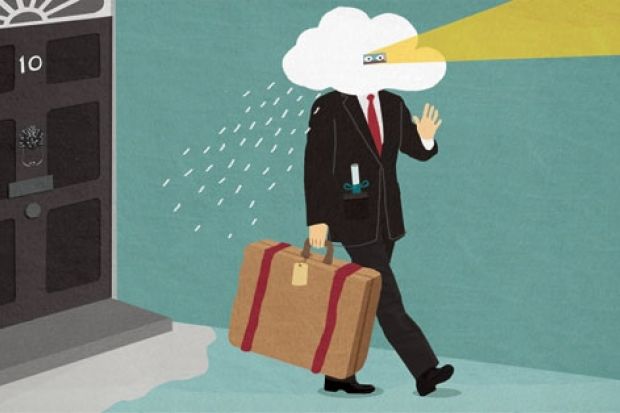This summer, Tony Blair launched A Journey, his account of his years as prime minister. It is unlikely that he read Engels' book, Socialism: Utopian and Scientific, published 130 years earlier, but perhaps he should have done. Whether or not we share Engels' politics - he called for a socialism that could both withstand examination and deserve the name Socialism - a lesson he did pass on to future generations is the importance in politics of differentiating between fantasy and reality.
Perhaps Blair, and now David Cameron in turn, might have had a clearer sense of the population they were supposed to lead if they had considered the distinctions Engels observed, between the world as it is and the world as we might like to see it.
In a 1999 speech, Blair said that part of his purpose in politics was to develop "a middle class that will include millions of people who traditionally may see themselves as working class, but whose ambitions are far broader than those of their parents and grandparents". This endorsement of classed personal aspiration turned sour when it became clear that the people who have benefited most from this political agenda are those already privileged.
The enthusiasm that Blair always demonstrated for "middle-class-ness" was not, of course, the same as an enthusiasm for the average person: the person who earns about £24,000 a year, and for whom state provision is central to a reasonable standard of living.
Blair's middle-class world was metropolitan, professional, educated at a Russell Group university and assured in its confidence of a life of prosperity and influence. A life, in short, that the majority of the population do not and cannot live, given the structural inequality endemic in this country.
But we were sold a vision of a life in which all doors opened, and opened through individual achievement in higher education.
Those library shelves that groan under the weight of studies of generational under-achievement, of economic constraint that limits educational achievement, of networks and cultures of class that affect every aspect of our social life, were somehow ignored by Blair. Rather than a real world in which the question of democracy should be considered in terms of access to public services, the public space of politics and state-funded institutions, democracy was re-translated as one of those "transferable skills" that were part of New Labour's education agenda.
This led to the disaster of Iraq, but in a more national sense it also meant that a vague possibility became a lodestar of politics.
This absence of a politics that is based in the material realities of British life has allowed the present government to take forward policies that most directly adversely affect the poor and least privileged. The upper middle class are unlikely to be vastly discomforted by such measures as cuts in housing benefit, repairs to state schools or much higher university fees; but so great is the refusal of class that Blair perpetrated that it is actually possible for Cameron to pass himself off as an ordinary chap, with ordinary problems. This "ordinary" person commands a cabinet of other "ordinary" people, more or less entirely white, male and as middle class as Blair's wildest dreams.
The cost of Blair's refusal to do class is that the current pernicious exercise of cuts in state spending has made it increasingly difficult for those in opposition to oppose these measures without being accused of returning to those "old" class politics from which Blair was so anxious to escape.
For those metropolitan and well-educated people who can enjoy the benefits of globalisation it is possible to continue to see the world as endlessly negotiable. Elite institutions will continue to flourish and privilege to reproduce itself. Yet outside this world, where life is rather more insecure and rather more dependent on those in power being able to recognise inequality, its causes and its implications, that absence of security will continue.
At the same time, the refusal to acknowledge the collective situation of individuals allows a greater political and ideological space to those who wish to see the poor or "unsuccessful" as possessed of the "wrong" attitude and lacking in those "positive" views that will apparently transform their situation.
Blair's "journey" seems to have been one of dreams; certainly a journey without maps or that basic information about the world that is supposed to be essential to all successful travelling. Nobody would want to stop individuals setting off on ambitious journeys, but we may all claim the right to refuse to accompany them.
Register to continue
Why register?
- Registration is free and only takes a moment
- Once registered, you can read 3 articles a month
- Sign up for our newsletter
Subscribe
Or subscribe for unlimited access to:
- Unlimited access to news, views, insights & reviews
- Digital editions
- Digital access to THE’s university and college rankings analysis
Already registered or a current subscriber?
